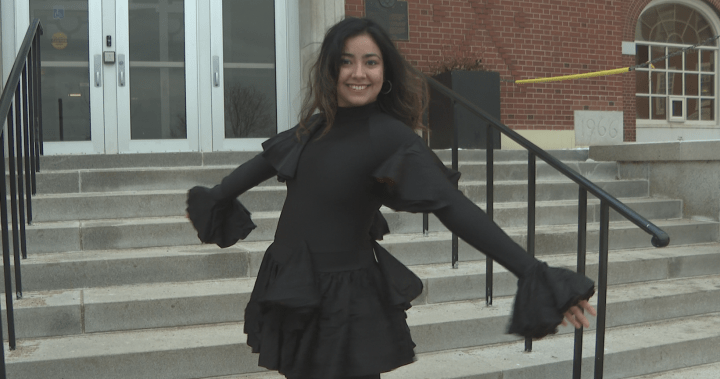Jagriti Luitel, a student at the University of New Brunswick, has embarked on a unique journey blending her childhood fascination with space and her passion for fashion. Driven by a desire to carve her own path and leverage her talents, Luitel participated in a zero-gravity flight program offered by the Aurelia Institute, an organization dedicated to preparing humanity for the challenges and opportunities of space travel. This experience became the canvas for her innovative project: designing a dress that not only reflects her Nepalese heritage and embraces traditional feminine aesthetics but also addresses the practicalities of space travel, all while envisioning the future of fashion beyond Earth.
Luitel’s project transcends the realm of mere clothing design; it represents a foray into the nascent field of space fashion, a domain poised for exponential growth in the coming decades. She recognizes the burgeoning economic potential of the space industry, predicting a surge in job opportunities and a booming space economy within the next generation. Her foresight aligns with the increasing privatization of space exploration and the growing anticipation of widespread space tourism, signaling a future where fashion will no longer be confined to terrestrial runways. Collaborating with New York City fashion designer Deborah Won, Luitel has sought to create a garment that is both visually striking and functionally appropriate for the unique environment of space.
The dress itself is a confluence of cultural influences, practical considerations, and artistic vision. It incorporates elements of traditional Nepalese design, paying homage to Luitel’s heritage and providing a personal touch to her creation. The incorporation of pockets, a seemingly mundane detail, underscores the importance of functionality even in the most extraordinary of settings. In a microgravity environment where objects float freely, secure storage becomes crucial, and the inclusion of pockets addresses this practical need. Beyond its functionality, the dress embodies a certain elegance and femininity, challenging the stereotypical image of bulky, utilitarian space suits. Luitel’s vision is to create clothing that allows individuals to express their personal style and identity even in the vast expanse of space.
Luitel’s participation in the Aurelia Institute’s zero-gravity flight program provided the ultimate testing ground for her design. The experience allowed her to observe the dress’s behavior in a weightless environment, offering invaluable insights into its functionality and aesthetic impact. This real-world test went beyond theoretical design considerations, providing crucial data for further refinement and development of space-appropriate apparel. The zero-gravity flight not only served as a practical experiment but also offered a unique opportunity to capture the dress in its intended environment, resulting in stunning visuals of the garment billowing and flowing in the absence of gravity.
The implications of Luitel’s project extend beyond the creation of a single dress; it signifies a pioneering step towards establishing a new paradigm for fashion. As space travel becomes increasingly accessible, the demand for clothing adapted to the unique challenges of extraterrestrial environments will inevitably rise. Considerations like temperature regulation, radiation protection, and mobility in microgravity will become paramount in the design of space apparel. Luitel’s work serves as a precursor to this future, initiating a dialogue about the role of fashion in the context of space exploration and human expansion beyond Earth.
Luitel’s story highlights the convergence of seemingly disparate fields, demonstrating how passion, innovation, and foresight can lead to groundbreaking endeavors. Her journey from a childhood fascination with space to designing a dress for zero gravity exemplifies the potential for individuals to contribute to emerging fields through creative and interdisciplinary approaches. As the space industry continues to evolve, initiatives like Luitel’s will become increasingly important in shaping the future of human life beyond Earth, addressing not only the practicalities of survival but also the human need for self-expression and aesthetic engagement, even in the most extreme environments.

